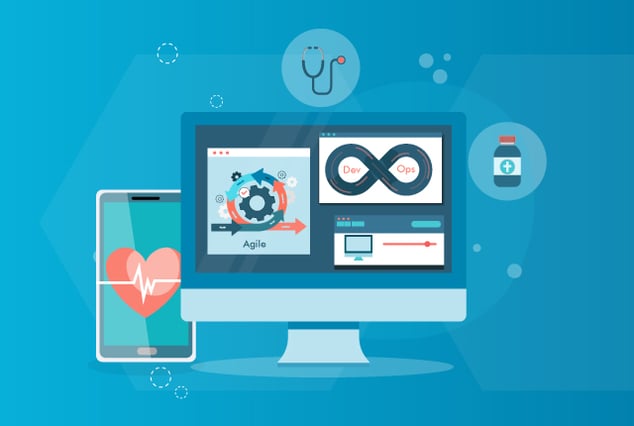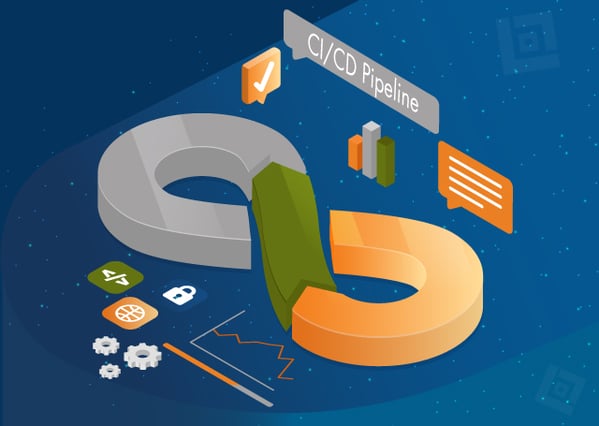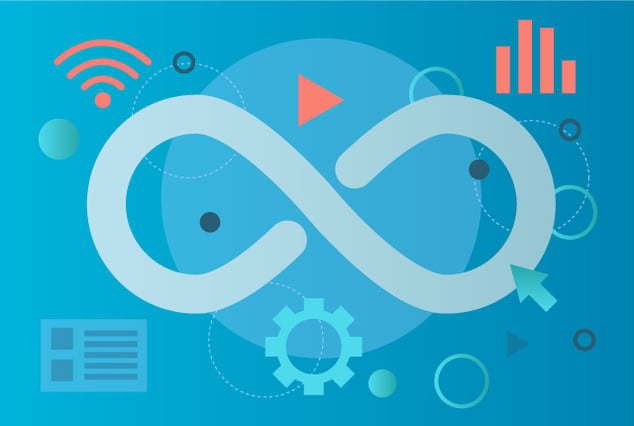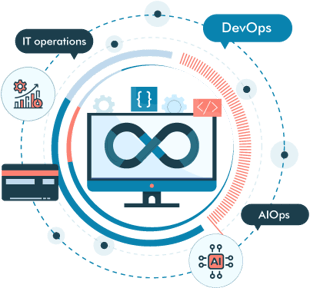
Begin an exploration of the strategic mix of AIOps with DevOps, a merging where best operational practices meet advanced automation strategies. Discover how this powerful collaboration is reshaping IT operations, promoting efficiency, enhancing security, and enabling refined decision-making in today's ever-changing technological landscape.
What Is DevOps
DevOps is the dynamic blend of software development and IT operations that accelerates the software development lifecycle while enhancing software quality. With the adoption of automation tools and techniques, DevOps teams efficiently manage everything from code creation to deployment and monitoring.
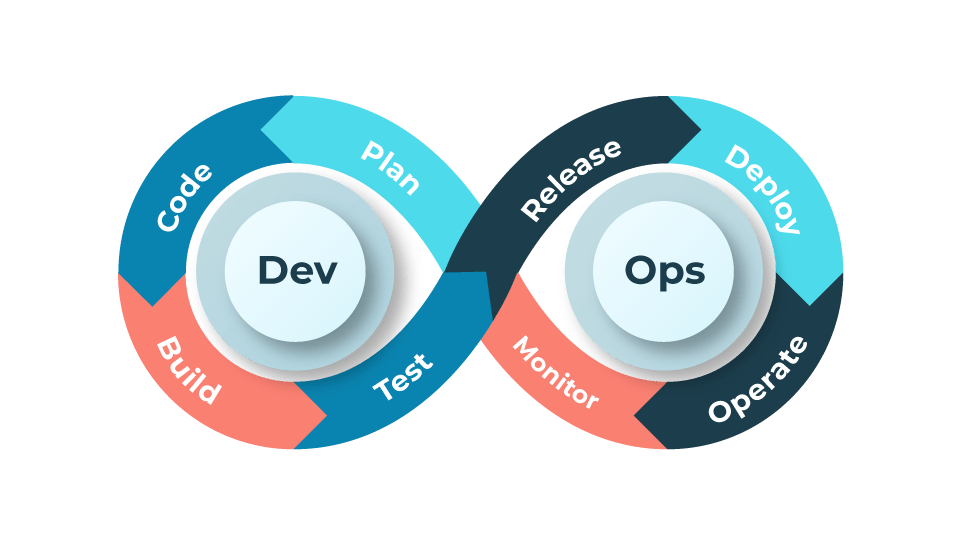
Introduction to AIOps
AIOps is an advanced way of handling tasks in technology using data-driven methods. It uses artificial intelligence to automate and make IT processes more efficient. AIOps collects information from various sources and can recognize patterns and irregularities, helping to predict and prevent issues. It can also handle essential tasks like setting up application dependencies, managing configurations, managing the application environment, etc., making operations smoother.
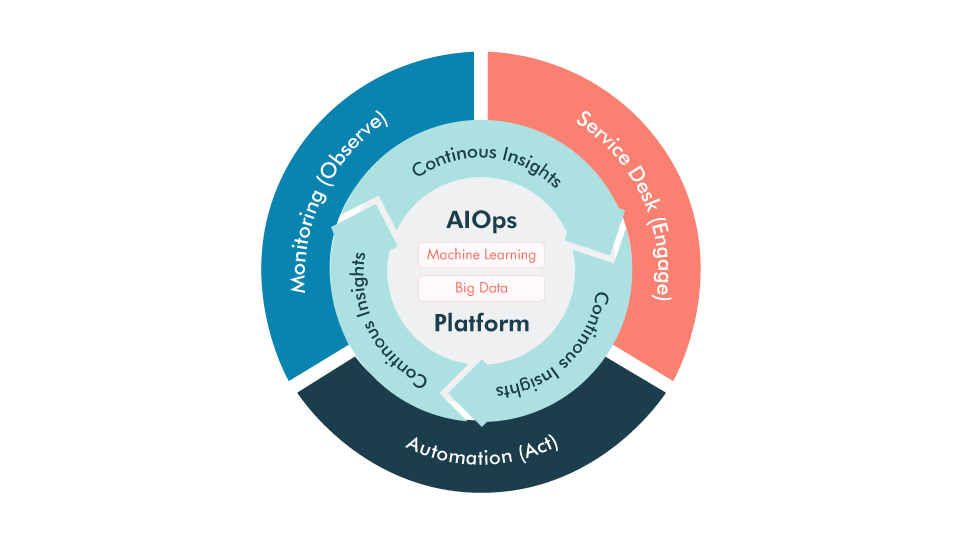
AIOps Trends
Organizations increasingly focus on predictive and prescriptive analytics to anticipate issues and make proactive decisions. AIOps tools are incorporating more automation, making creating, deploying, and managing AI-driven processes in DevOps environments easier.
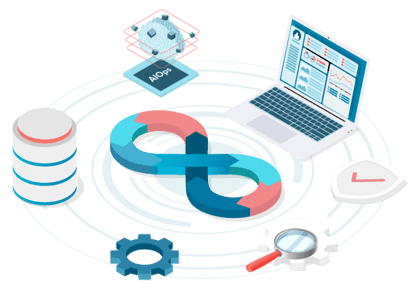
Why Should AIOps Be Integrated Into DevOps
Integrating AIOps into DevOps offers an array of compelling benefits:
- Enhanced DevOps Performance: AIOps rapidly detects and resolves issues, resulting in fewer outages and performance hiccups by improving the user experience.
- Unmatched DevOps Agility: With AIOps, organizations gain the flexibility to respond promptly to changes in their environment, helping them stay ahead of the competition and deliver superior customer experiences.
- Optimized DevOps Costs: By automating tasks and improving efficiency, AIOps reduces costs and allows the team to focus on strategic, value-added activities.
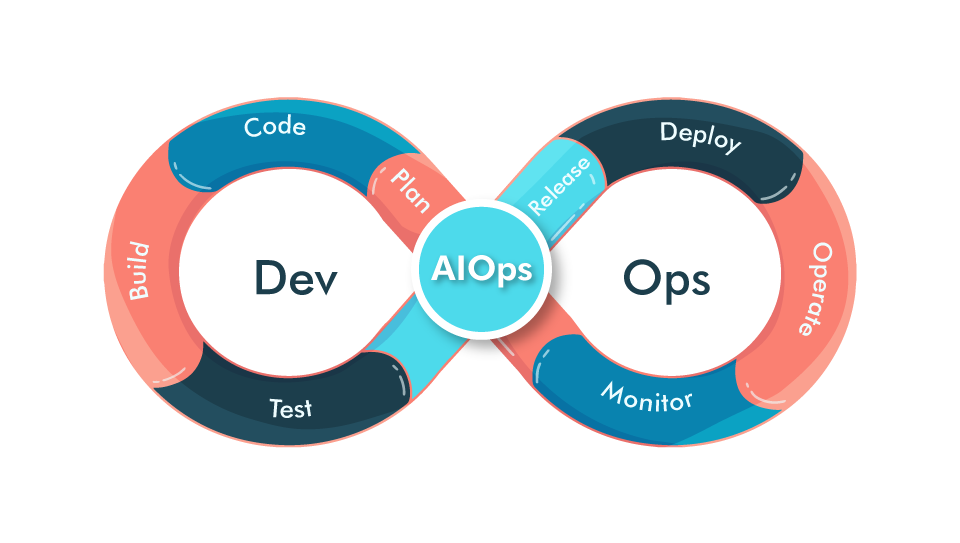
How Does AIOps Integrate With DevOps
AIOps can be integrated with DevOps in a number of ways:
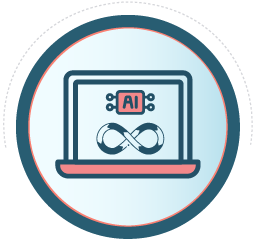
- Identifying and Adding Continuous Improvements: AIOps provides data analysis, identifies trends, and provides insights to help DevOps teams make data-driven decisions. This supports ongoing development and deployment process improvement.
- Scalability and Resilience: AIOps helps DevOps in handling scalability and resilience issues. It analyzes performance data to suggest resource allocation improvements, enhance system scalability, and ensure robustness in dynamic environment.
- Continuously Training and Maintaining CI/CD Systems: AIOps can be integrated into CI/CD pipelines to automate deployment activities, monitor the health of the deployed application, and roll back changes when anomalies or problems are discovered.
- Pre-processing Data and Predictive Analytics: AIOps analyze errors before they impact the system using historical data and predictive analytics. DevOps teams can act on these predictions to enhance deployment pipelines, resulting in speedier releases and improved application performance.
- Security and Compliance: AIOps enhances DevOps by using AI-driven security analytics to check for compliance violations and real-time security threats. This improves the security of applications throughout the development lifecycle.
- Monitoring and Evaluating Performance: AIOps can assess effectiveness in improving various process aspects by regularly monitoring the performance.
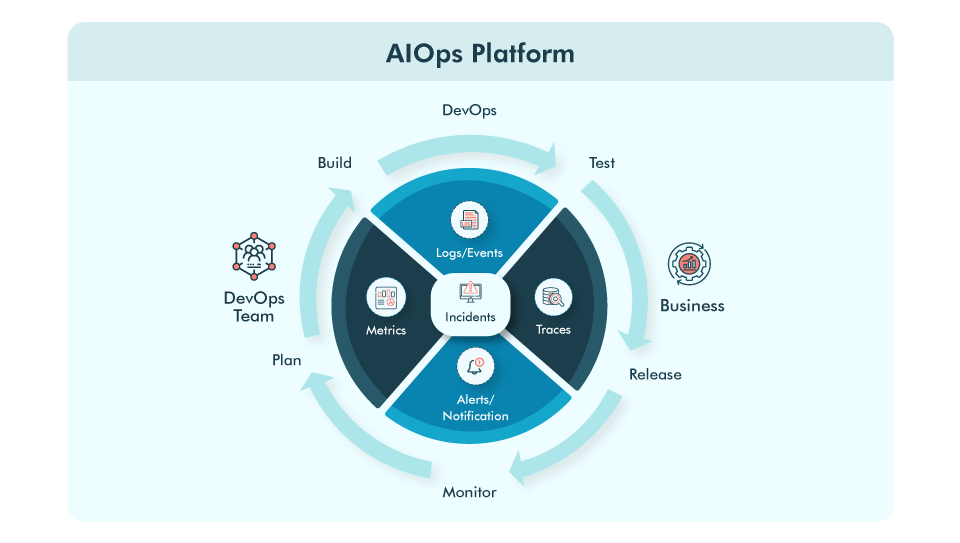
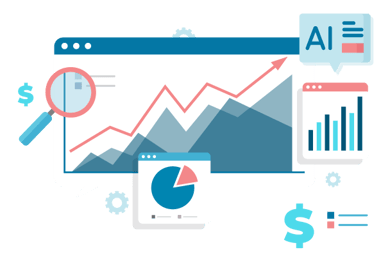
AIOps Market Trends
The market for AIOps is expected to grow from $6.7 billion in 2021 to $80.2 billion by 2032. This represents a CAGR of approximately 25.4% during the forecast period.
As the AIOps market in DevOps continues to grow, organizations are likely to continue to innovate and offer new and improved solutions.
Benefits of Incorporating AIOps in DevOps
- Improved decision-making: AIOps helps the DevOps team with insight into their IT environment, which can help the DevOps team make better decisions about resource allocation and optimize the infrastructure.
- Enhanced Customer Experience: Incorporating AIOps into DevOps leads to faster issue resolution, proactive monitoring, and increased reliability, all of which enhance the end-user experience.
- Reduced Downtime: Through proactive monitoring and quick issue resolution, AIOps integration with DevOps reduces downtime, increasing application availability.
- Increased visibility: AIOps can provide a detailed view of the collected data from all the different components like servers, networks, applications, and databases, which can helps the DevOps team identify and troubleshoot problems more quickly.
- Streamlined Incident Management: AIOps automates incident responses, aligning with DevOps automation principles for faster and consistent resolution.
Challenges of Integrating AIOps in DevOps
There are a few challenges that organizations may face when integrating AIOps in DevOps, including:
Data Collection and Management
AIOps requires large amounts of data to train its models. Organizations need to have a way to collect and manage this data securely and competently.
Model Development and Deployment
AIOps models must be developed and deployed as scalable and reliable, necessitating the right tools and expertise.
Change Management
Integrating AIOps into DevOps can require changes to how organizations operate. Organizations need to have a plan for managing these changes and ensuring success.
Security and Privacy Concerns
The use of AI in operations necessitates stringent security measures to protect sensitive data and ensure regulatory compliance.
How To Get Started With AIOps in DevOps
-
Understand AIOps Concepts
Begin by familiarizing yourself and your team with AIOps concepts, such as machine learning, data analytics, automation, and their applications in IT operations.
-
Analyze Current DevOps Practices
Evaluate your existing DevOps workflows, processes, and tools. Identify areas of improvement, challenges, and challenges that AIOps could address effectively.
-
Identify AIOps Use Cases
Determine the specific use cases where AIOps can add value to your DevOps environment. Everyday use cases include real-time monitoring, anomaly detection, log analysis, predictive analytics, and automated incident resolution.
-
Identify the Right AIOps Platform Tools
Choose appropriate AIOps tools by researching and ensuring they align with your existing DevOps toolchain. Factors to consider include compatibility with data sources, machine learning capabilities, and ease of Integration.
-
Data Collection and Integration
Establish a comprehensive data collection strategy that gathers information from various sources, such as logs, metrics, events, and traces. Integrate your monitoring and logging solutions to feed relevant data into the AIOps platform.
-
Data Preparation and Cleaning
Ensure the data collected is highly relevant to AIOps algorithms. Clean and preprocess the data to ensure it's of high quality. Data quality is crucial to making accurate predictions and insights.
-
Monitor and Evaluate
Continuously monitor the performance of AIOps in your DevOps environment. Evaluate the impact on incident response times, problem resolution, system stability, and overall operational efficiency.
-
Continuous Improvement
AIOps integration in DevOps is an iterative process. Gather feedback, learn from the results, and continuously improve your AIOps workflows.
-
Security and Compliance
When implementing AIOps in your DevOps environment, consider security and compliance concerns. Implement proper access controls and encryption to safeguard sensitive data.
Conclusion
Integrating AIOps with DevOps presents a transformative opportunity for organizations to enhance their operational efficiency significantly. By leveraging the power of AI-driven automation, businesses can streamline their DevOps practices, optimize IT operations, and effectively navigate the dynamic technological landscape. Embracing AIOps services will undoubtedly empower organizations to stay ahead of the curve and achieve new levels of success in today's ever-evolving digital world.
Have Suggestions?
We would love to hear your feedback, questions, comments, and suggestions. This will help us to make us better and more useful next time.
Share your thoughts and ideas at knowledgecenter@qasource.com
